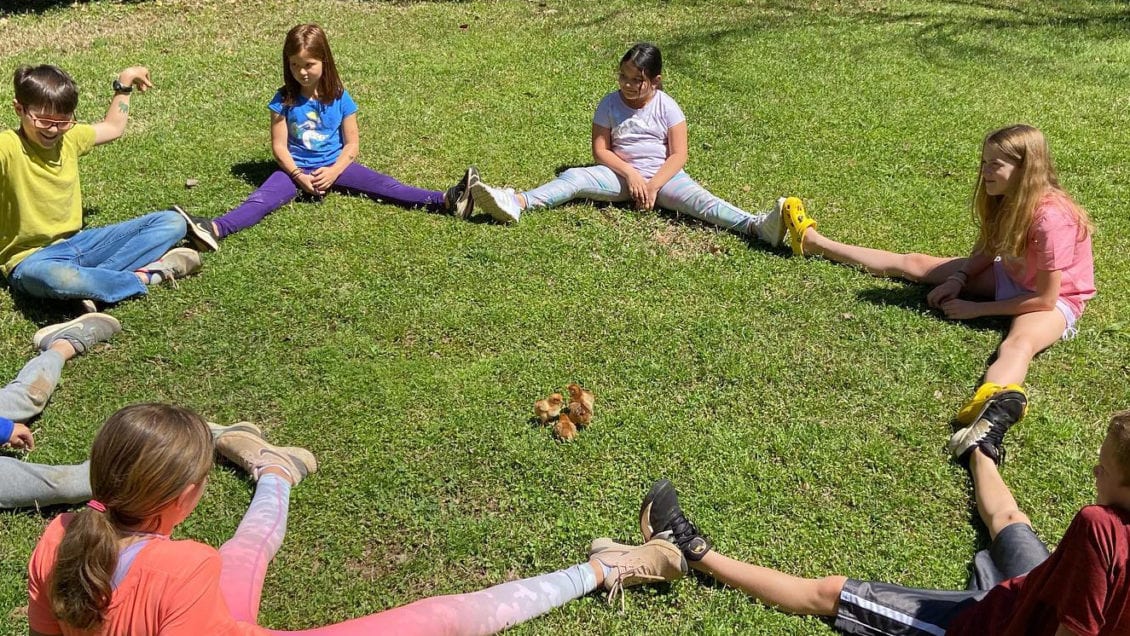There has been no shortage of experts or studies over the last year encouraging people to get outside for the good of their health, especially in light of the COVID-19 pandemic. Research shows that outdoor experiences can improve a person’s mood, physical health and overall sense of wellbeing at any age. But does being outside also impact the development of key competencies and strengths that can help youth succeed?
Researchers from Clemson University, NC State and the University of Birmingham started exploring that question in 2015, through a survey of about 600 middle school students in rural communities throughout South Carolina. Their findings were recently published in Frontiers in Psychology, an open access research journal.

Ed Bowers, a youth development researcher at Clemson University and the article’s lead author, says that although people have been talking for years about the importance of childhood contact with nature, few studies have specifically examined possible connections between time spent outdoors and the area of developmental psychology focused on positive youth development.
“While there is growing evidence that nature can positively affect the mental and physical health of children in many ways, existing research tends to focus on only one discipline’s perspective of the issue, such as recreation, education or psychology,” Bowers said. “Our study is among the first to take an interdisciplinary approach to the topic, allowing us to more fully explore the specific role of contact with nature, a critical element of a larger system that has often been overlooked.”
The study asked students questions related to positive youth development, a model that people working in positive youth development commonly use to measure a child’s strengths. This model is structured around the six “c’s” – competence, confidence, caring, connection, character and contribution. Character, for example, can be measured by doing the right thing, having integrity and valuing diversity. Caring, on the other hand, is assessed by whether or not the teenager is bothered by seeing bad things happen to people or if they want to step in and help.

The study also focused on students from diverse, low-income counties – an audience that study co-author Lincoln Larson from NC State says is rarely studied. Larson said the research that does exist on this population tends to focus on negative instead of positive behaviors.
“The research on low income, historically marginalized youth is often focused on the limiting factors around them, including lower academic success and higher rates of behavior problems,” Larson said. “Few studies have focused on this group of children from a strengths-based perspective to identify potential resources in their community that can promote positive development.”
Larson added that rural youth also typically have access to one resource that at times can be out of reach to children living in urban environments: nature. Easy access to the outdoors and green spaces that many in rural areas take for granted has been found to be a significant factor in fostering positive youth outcomes.
Study findings suggested that youth who spend time in nature and feel connected to the outdoors are more likely to report positive developmental outcomes. Direct experience in nature, which was measured as time spent outdoors, was also linked to a stronger sense of competence among the students surveyed. Above all, responses to several survey questions that assessed students’ affective and emotional bonds with the natural world demonstrated that a strong connection to nature positively predicted every developmental outcome, especially character, caring and contribution.

Benjamin Parry from the University of Birmingham said that the study results support previous research in the field that demonstrates youth time in nature can lead to pro-environmental behavior and stewardship later in life. Although the study’s findings were gathered in the 2015-16 school year, they also demonstrate how nature can serve as an important source of health and resilience during times of crisis, such as the COVID-19 pandemic.
“Fostering positive youth development in nature settings can provide a unique source of resilience for youth during difficult or challenging times,” Parry said. “Our research demonstrates that adolescents who participate in outdoor activities during these periods would be far less likely to report declines and more likely to maintain their mental health through resilience.”
The researchers are hoping that the study’s findings can be used by youth development professionals and parents to consider offering or expanding access to nature in both rural and urban settings. This might include nearby nature programs, which provide smaller doses of nature closer to home, and at a lower cost than more expensive excursions, such as backpacking trips. The researchers also plan to continue exploring the developmental benefits nature can provide to diverse youth.
“We need more studies and more programs to help diverse youth realize the benefits of time in nature,” Bowers said. “Our team is working with partners around the country to make that happen.”
The Department of Parks, Recreation and Tourism Management is part of the University’s College of Behavioral, Social and Health Sciences (CBSHS). Established in July 2016, CBSHS is a 21st-century, land-grant college that combines work in seven disciplines – communication; nursing; parks, recreation and tourism management; political science; psychology; public health sciences; sociology, anthropology and criminal justice – to further its mission of “building people and communities” in South Carolina and beyond.
Get in touch and we will connect you with the author or another expert.
Or email us at news@clemson.edu

